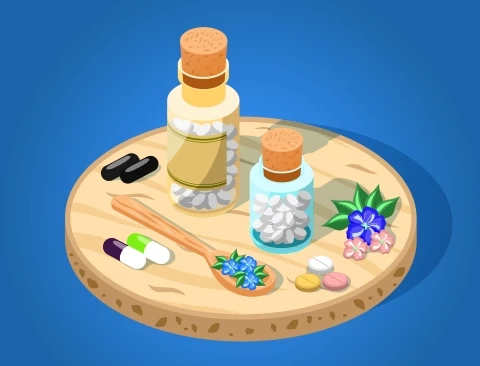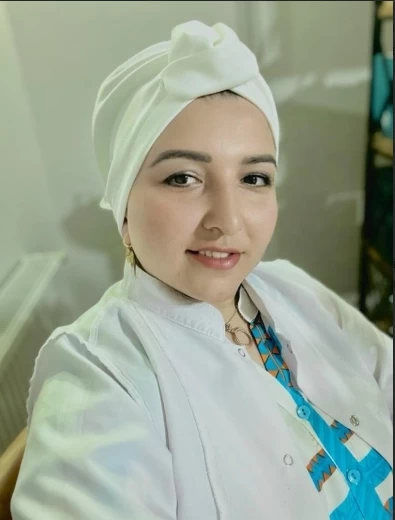
Homeopathy Perspective
- Homeopathy Perspective
- Homeopathy Perspective
- History of Homeopathy
- Today...
- Homeopathy's Working Principle
- Applications of Homeopathy
- In conclusion...
Homeopathy Perspective
We are a part of the nature we live in. Just as we affect it, we are also affected by it. We are healthy when we are in harmony. Sometimes in life, we encounter deadlocks, difficulties, obstacles, and traumas. Sometimes we overcome them, and sometimes we get stuck there. It preoccupies our minds and affects our psychology. We get hurt. According to the WHO perspective, disease is the absence of health. Being healthy means a state of complete well-being, both mentally and physically. Anything that disrupts this state of well-being constitutes the cause of disease. If we can find the cause of the diseases, we can also find the path to healing.
The founder of modern medicine, Sokrates, used the principles of treatment with opposites and treatment with similars in solving diseases. Homeopathy also adopts the treatment approach based on the principle of similarity. Homeopathy comes from the Greek words "homeo" which means similar, and "pathy" which means pathology. It means similar disease picture.
In homeopathy, there is no disease, only the sick. Modern medicine focuses on diseases rather than patients. It labels them as diabetes, hypertension, etc. There is a treatment protocol based on the disease. In homeopathy, two different patients with hypertension will receive different treatments. It doesn't just look at hypertension. It takes into account the patient's structure, lifestyle, nutrition, family history, experiences during the mother's pregnancy, and many other details. It doesn't just say high blood pressure and move on. It evaluates the patient from multiple angles and plans treatment specifically for the individual.
In modern medicine, chronic diseases often involve continuous use of medication. Homeopathy does not involve continuous use of medication. They are used for a certain period, and improvement can be observed. Even if healing cannot be achieved, the number of medications used can be reduced. It is a process that improves the quality of life. When you have a headache, you take a painkiller. The pain subsides in 1-2 hours. Even if I don't feel the pain, the problem actually continues. Homeopathy is a more root cause-oriented alternative medical method. It focuses on healing rather than just alleviating pain.
History of Homeopathy
Homeopathy is an alternative medical treatment method developed by German physician Samuel Hahnemann in the 18th century. Hahnemann realized that the methods used as medicine in his time weakened the patients rather than strengthening them and were ineffective. He understood how far away the medical understanding of that period was from him, closed his practice, and made a living by working as an interpreter and writer for a while. In 1790, while translating the book "A Story on Dr. William Cullen's Materia Medica," he came across a section about Cinchona bark. He was intrigued by the information about Cinchona bark, which contained quinine, being effective against malaria. He decided to experiment with this substance on himself. He started taking quinine and recorded his reactions in detail. He noticed that even though he didn't have malaria, he started experiencing malaria symptoms one after another. These symptoms would appear when he took a dose of quinine and disappear a few hours later. When he didn't take quinine, there were no symptoms. Was quinine the reason for curing malaria? To test this theory, he repeated the doses of quinine in people he knew and recorded their effects in detail. Then he performed similar experiments with other substances used as medicines, such as arsenic and belladonna. These experiments were conducted under strict conditions. The subjects were not allowed to consume alcohol, tea, coffee, or spicy and salty foods that could affect the results. Symptoms experienced by healthy individuals after taking substances were recorded in detail. When these symptoms appeared in patients, it was observed that administering the corresponding substance improved their conditions. Hahnemann continued his experiments by testing a wide range of natural substances and discovered the principle of "treating similars with similars." He suggested that the better the disease picture matched the remedy's picture, the better the healing would be. For example, when we cut onions, our eyes burn and our nose runs. Similarly, if someone has symptoms of burning eyes and watery nasal discharge during a cold, we can observe that the remedy Allium Cepa (Onion) can alleviate the patient's symptoms. Although his idea was initially rejected, its success in dealing with outbreaks during that period eventually led to its widespread acceptance. It eventually became established as a scientific branch of medicine.
Today...
Homeopathy is accepted in many countries, including Germany, as well as in various European countries, India, and the United States. In some countries, it is even taught in medical faculties. There are specialized homeopathy hospitals. In Turkey, it is a method that is gradually being recognized and its effects are being discovered. Some hospitals have established homeopathy clinics. The number of physicians practicing homeopathy is also increasing. Remedies (medications) are now officially available for sale in pharmacies.

Homeopathy's Working Principle
Homeopathy is an alternative medical method based on the principle of "treating with similars." Homeopathy focuses on the symptoms of the disease and selected homeopathic remedies act by stimulating the body's self-healing mechanisms. To understand its operation, let's examine the following basic principles:
- Similia Similibus Curentur: Like cures like.
- Minimum Dose Principle: Homeopathic remedies are used in minimum doses. This is achieved by diluting the substance and shaking it for a specific period to activate it. Hahnemann used this method to minimize side effects of the medicine and enhance its effectiveness.
- Individual Approach: Homeopathy treats each patient as a whole and evaluates their symptoms on physical, emotional, and mental levels. Treatment is determined according to the individual's condition and symptoms. Even if two people have similar symptoms, their individual characteristics may differ, so different homeopathic remedies may be prescribed for them.
- Focusing on the Cause of Disease: Homeopathy addresses not only the symptoms of the disease but also its underlying causes. Treatment aims to identify and remove the obstacles to the vital force.
- The Body's Self-Healing Ability: Homeopathy focuses on supporting and stimulating the body's self-healing mechanisms.
Applications of Homeopathy
Homeopathy can be used in the following areas:
- Acute Diseases: It can be used in the treatment of sudden onset and short-term diseases such as cold, flu, diarrhea, headache, and injuries.
- Chronic Diseases: Homeopathy may provide treatment or supportive effects for some individuals in the treatment of chronic diseases. Such as asthma, psoriasis, rheumatoid arthritis, chronic migraines, diabetes, hypertension, etc.
- Allergies and Skin Conditions: It can be used in the treatment process of allergic rhinitis, urticaria, angioedema, etc.
- Skin Problems: It can be used in the treatment of conditions such as eczema, psoriasis, acne, and hives.
- Stomach Problems: It can be used in the treatment of heartburn, gas, bloating, and digestive problems.
- Gallbladder and Liver Disorders: It can be used in the treatment of diseases such as hepatitis, jaundice, cholelithiasis, cholecystitis.
- Women's Health: It can play a supportive role in the treatment of menstrual discomfort, irregular menstruation, and menopause symptoms.
- Stress and Mental Health: It helps manage stress, anxiety, depression, panic attacks, insomnia, and other mental health problems.
- Neurological Diseases: It can be used in the treatment of conditions such as epilepsy, multiple sclerosis, dementia, autism, and paralysis.
In conclusion...
Homeopathy is an alternative medical method that adopts a personalized approach and focuses on symptoms.






